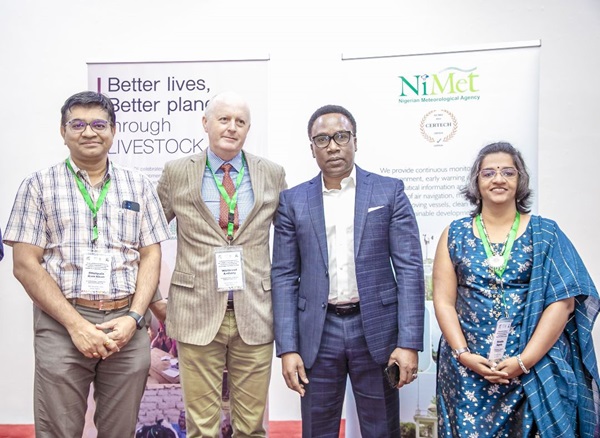
The director-general of the Nigerian Meteorological Agency (NiMet), Prof. Charles Anosike has reaffirmed the agency’s commitment to climate-proofing the economy by delivering timely weather and climate information.
Anosike made this statement while welcoming participants to a one-day workshop titled “Understanding the Landscape of Agro-Meteorological Data Resources and Processes for Facilitating Climate-Smart Agriculture Adoption.” The workshop was jointly organised by NiMet and the International Livestock Research Institute (ILRI) in Abuja.
According to Anosike, the event aimed to enhance participants’ understanding of agro-meteorological advisory systems in Nigeria.
“This workshop is critical for building resilience among smallholder farmers and livestock keepers by identifying adaptation options, best practices, and addressing adaptation gaps,” he said. “I am particularly grateful to ILRI for co-hosting this event at a time when NiMet is strategically exploring the pastoralist landscape of Nigeria to develop early warning systems tailored for the sector. This initiative aligns with the UN’s Early Warnings for All (EW4ALL) campaign.”
Anosike further explained that NiMet’s agrometeorological advisories have expanded to include co-production, a concept supported by the World Meteorological Organisation (WMO). “Co-production allows key stakeholders to participate in creating weather and climate information, enhancing its accuracy and relevance. This workshop enables stakeholders to map out critical climate information advisories for smallholder farmers and livestock keepers,” he concluded.
Programme leader for livestock, climate and environment at ILRI, and one of the workshop facilitators, Anthony Whitbread highlighted the workshop’s goal of improving participants’ capacity to identify information gaps, enhance data collection processes and deliver relevant information to the last mile, while ensuring gender and social inclusion.
Senior scientist for institutions and innovation at ILRI, Rupsha Banerjee outlined the workshop’s expected outcomes, including the development of a “country profile and infographic brief” and the delivery of climate services through public and private sector channels in Nigeria.

